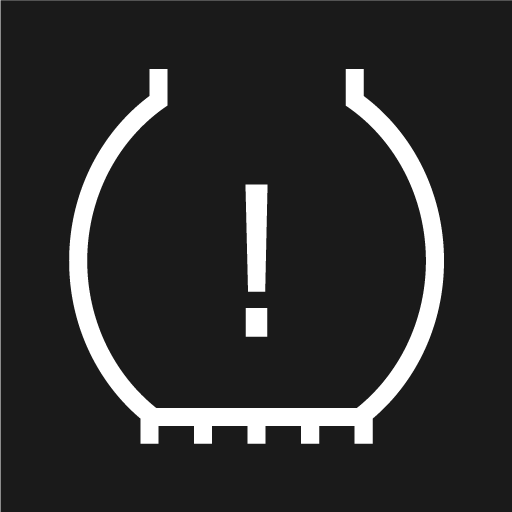
Check and rectify the tyre pressure when the indicator symbol for the system is illuminated and the message for low tyre pressure message is shown.
Switch off the car.
Check the tyre pressure in all four tyres with a tyre pressure gauge.
Inflate the tyres to the correct pressure, see the decal on the door pillar on the driver's side showing the recommended pressure for factory fitted tyres.
Always save a new tyre pressure in the system via the centre display after the tyre pressure has been adjusted. This can only be done when the car is running and stationary.
Note that the indicator symbol does not extinguish until the low tyre pressure has been rectified and storing a new tyre pressure has been started.
Several minutes of driving are required at a speed above 35 km/h (22 mph) in order for the system to be able to store the new reference value.
Note
To avoid incorrect tyre pressure, the pressure should be checked on cold tyres. "Cold tyres" means the tyres are the same temperature as the ambient temperature (approx. 3 hours after the car has been driven). After a few kilometres of driving, the tyres warm up and the pressure increases.
Note
- After a tyre has been inflated, always refit the dust cap in order to avoid damage to the valve from gravel, dirt, etc.
- Only use plastic dust caps. Metal dust caps can rust and become difficult to unscrew.
Warning
- Incorrect tyre pressure may lead to tyre failure, which could result in the driver losing control of the car.
- The system cannot indicate sudden tyre damage in advance.